Water Resources Class 4 Notes SST
| Table of contents |

|
| Water |

|
| Sources of Water |

|
| Importantance of Water |

|
| Irrigation |

|
| How Water is crucial for Irrigation? |

|
| Means of Irrigation |

|
| Key Points |

|
Water
Water is a clear liquid that you can drink, and it's found all around us—in rivers, lakes, oceans, and even in the air as clouds. Every living thing, like people, animals, and plants, needs water to survive.
Without water, our bodies and the world around us wouldn't be able to work properly. That's why it's super important to drink water every day and use it wisely!
Sources of Water
There are many places where we can find water, and these are called sources of water. Here are some of the main ones:
- Rain: Main source of freshwater; farmers rely on rainwater for crops.
 Rain
Rain - Groundwater: Rain that seeps into the ground, forming groundwater.
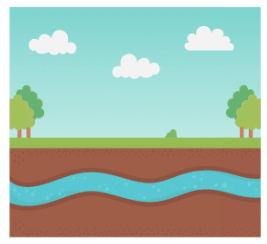 Ground water
Ground water - Ponds and Lakes: Water areas surrounded by land; rainwater collects here.
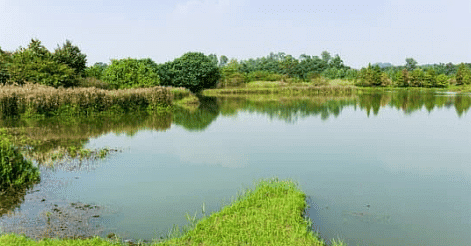 Pond
Pond - Rivers: Originating from mountains or plateaus, they carry water throughout the year or seasonally.
 River
River - Seas and Oceans: Earth's largest water bodies, but their water is salty and not usable.
 Sea
Sea
Importantance of Water
Water is essential for life, health, agriculture, ecosystems, industries, and the planet's overall well-being. Let's Learn how water is so crucial:
- Essential for Life: Water is crucial for all living beings, including humans, animals, and plants. We need water to drink and stay hydrated, which is essential for our bodies to function properly.
- Hygiene and Health: Water is used for personal hygiene, like bathing and washing hands, which helps prevent the spread of diseases. Clean water is also necessary for sanitation and keeping our environment healthy.
- Agriculture and Food Production: Farmers rely on water to grow crops and raise livestock. Without water, we wouldn't have enough food to feed everyone.

- Ecosystems and Wildlife: Water is vital for maintaining ecosystems, such as rivers, lakes, and oceans, where many plants and animals live. It provides habitats and supports biodiversity.
- Industry and Economy: Many industries use water for manufacturing, cooling machinery, and cleaning processes. Water is also crucial for transportation, energy production, and various economic activities.
- Climate Regulation: Water plays a role in regulating the Earth's climate through processes like evaporation, condensation, and precipitation. It helps distribute heat and moisture across the planet.
Irrigation
Irrigation is a way to help plants grow by giving them water, especially when there isn’t enough rain. Farmers use irrigation to make sure their crops get the water they need to stay healthy and grow well.
Here’s how irrigation works:
- Water sources: Farmers use water from rivers, lakes, or groundwater (like wells) to irrigate their fields.
- Methods: There are different ways to do irrigation. For example, some farmers use canals or ditches to guide water to their crops. Others might use sprinklers that spray water over the fields, like rain. There’s also drip irrigation, where water drips slowly to the roots of the plants through tubes.
Irrigation is super important because it helps farmers grow food even in places where it doesn’t rain much. This way, we have enough fruits, vegetables, and grains to eat!
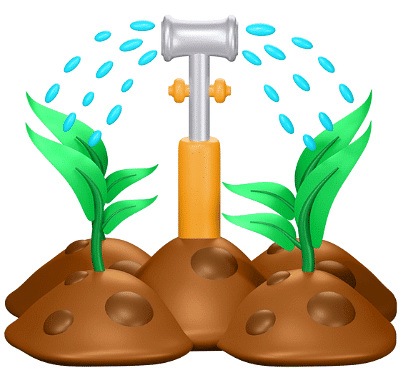 Irrigation through sprinklers
Irrigation through sprinklers
Benefits of Irrigation
- Ensures plants get enough water, especially during dry periods or in areas with limited rainfall.
- Helps crops grow faster and produce higher yields.
- Improves soil fertility by carrying nutrients to the plants' roots.
- Enables farmers to grow crops in areas where natural water sources are scarce.
How Water is crucial for Irrigation?
- Helps crops grow and produce more food.
- Increases crop quality and resistance to drought.
- Enables farmers to grow a variety of crops year-round.
- Contributes to economic growth and food security.
- Supports sustainable agriculture and water conservation.
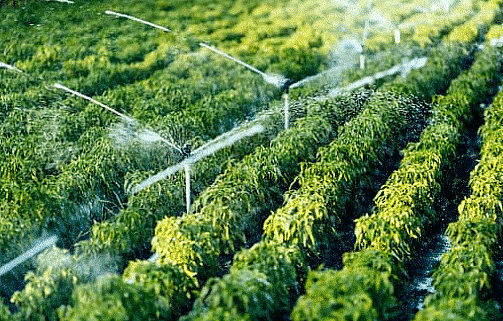 Importance of water for irrigation
Importance of water for irrigation
Means of Irrigation
Means of irrigation are the different ways farmers bring water to their fields to help their crops grow. Here are some common means of irrigation:
- Wells: Dug to bring groundwater; water is drawn using a wheel.
 Well
Well - Tubewells: Used in deeper groundwater areas, water is brought up with an electric pump.
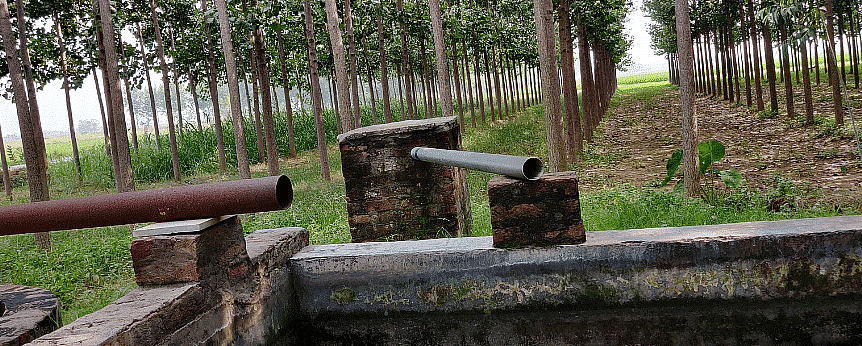 Tubewell
Tubewell - Canals: Channels dug from rivers to fields for water supply.
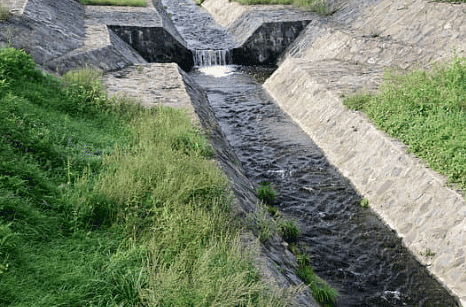 Canal
Canal - Tanks: Low-lying areas filled with water during monsoons, used for irrigation.
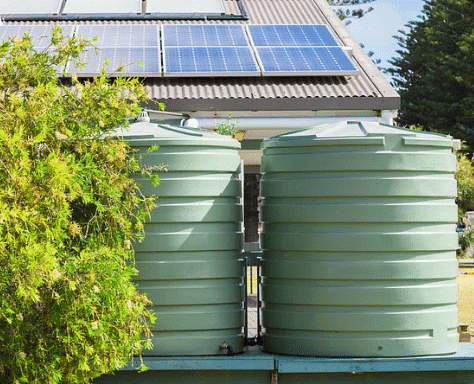 Tanks
Tanks - Sprinklers: Water sprayed into the air and falls like rain on plants; popular in specific regions.
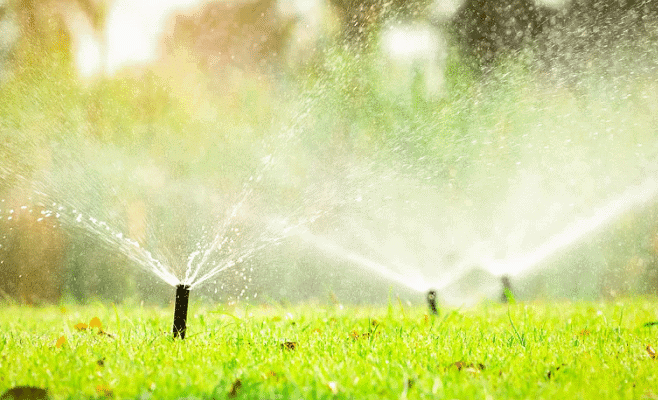 Sprinklers
Sprinklers - Dams: Strong walls built across rivers to store water in reservoirs.
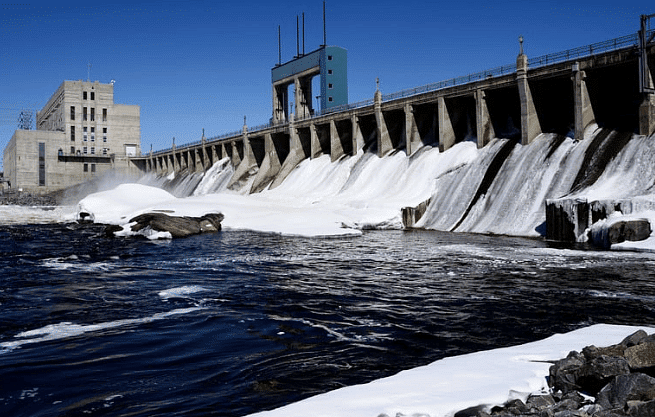 Dam
Dam - Multi-purpose projects: Provide hydroelectricity, water for irrigation, and flood control. Examples include Bhakra-Nangal Dam, Damodar Valley Project, Sardar Sarovar Dam, Mettur Dam, Tehri Dam, and Hirakud Dam in India.
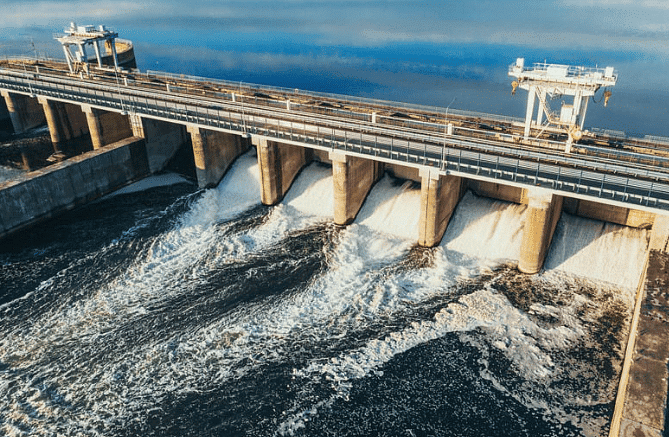 Multi-purpose project
Multi-purpose project
Key Points
- Rain is the primary source of freshwater, essential for agriculture and supporting life.
- Groundwater forms when rain seeps into the ground, creating an underground water reserve.
- Rivers, ponds, and lakes are key natural water bodies that provide water for various uses.
- Irrigation ensures crops receive water even in areas with limited rainfall, using methods like wells, canals, and sprinklers.
- Water is vital for health, hygiene, and maintaining ecosystems, as well as for industrial processes and economic activities.
- Irrigation improves crop yields, enhances soil fertility, and supports farming in arid regions.
- Dams and multi-purpose projects store water, provide irrigation, and offer additional benefits like flood control and hydroelectricity.
|
50 videos|246 docs|46 tests
|
FAQs on Water Resources Class 4 Notes SST
| 1. What are some common sources of water for irrigation? |  |
| 2. Why is water important for irrigation? |  |
| 3. How does water play a crucial role in agriculture and food production? |  |
| 4. What are some common means of irrigation used in agriculture? |  |
| 5. How does water scarcity impact irrigation practices and agricultural production? |  |




















